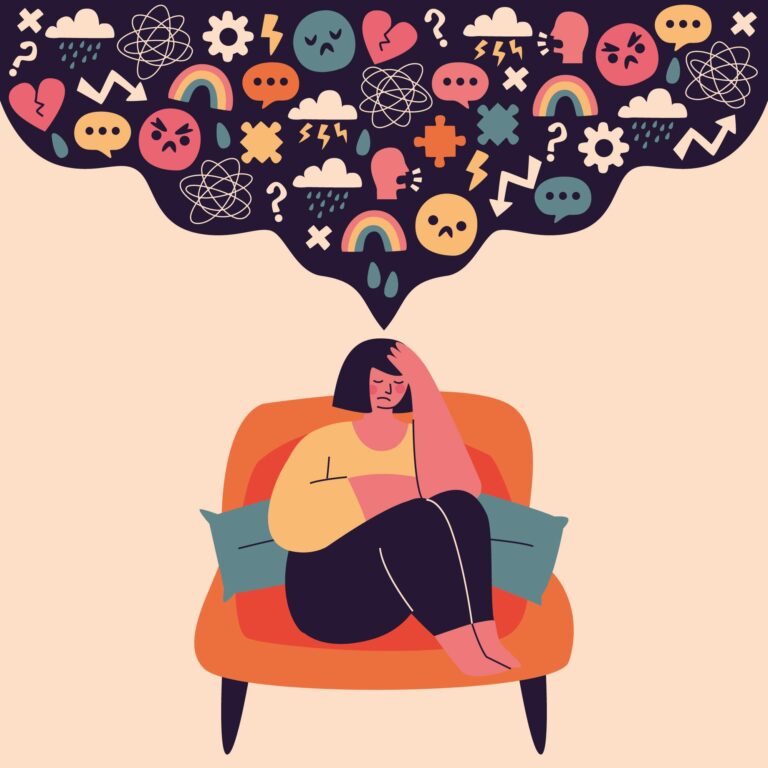
The end of the year always comes with noise, light, and celebration. From Christmas carols playing in malls to end-of-year parties and family gatherings, everything around you seems to scream joy. Yet, for some people, this is the hardest time of the year.
If you’ve been feeling unusually sad, empty, or disconnected even while everyone else seems to be in a festive mood, it doesn’t make you ungrateful or weak. It just means something deeper might be going on.
Let’s talk about that.
The festive season can feel like a performance. Everyone seems excited, posting pictures of matching pajamas, showing off decorations, buying gifts, and planning trips. But what happens when you don’t feel any of that excitement?
It’s easy to feel guilty for not being “in the mood.” You start to wonder if something is wrong with you. You scroll through social media, seeing people laughing and glowing, and you start comparing your reality to what you see on the screen.
You tell yourself, “I should be happy. Everyone else is.”
But happiness isn’t something you can force, and pretending only makes it worse. The truth is, many people are quietly struggling behind those perfect photos, too. The pressure to appear okay often makes the pain feel heavier.
Money is one of the biggest triggers for depression during the festive season. There’s pressure to buy gifts, travel home, host friends, or contribute to family events. You might find yourself stretched beyond what you can afford, just to keep up or avoid being judged.
In Nigeria, where “detty December” has become almost a culture, the expectation to spend can be exhausting. You might hear things like, “You never do Christmas shopping?” or “You no go show face this December?”
But behind that playful banter, there’s a deeper truth: not everyone is financially or emotionally in a place to celebrate. Some are recovering from job loss or business setbacks. Some are supporting family members while struggling themselves. Some are simply burnt out.
You may not even realize it, but the constant financial pressure, the feeling that you’re “not doing enough,” or that you’re missing out can gradually pull you into sadness and self-doubt.
Loneliness is another hidden part of festive depression. You can be surrounded by people and still feel incredibly alone.
Maybe you’re away from home, living in another city or country. Maybe you’ve lost someone dear and the holidays remind you of them. Or maybe you’ve drifted apart from friends and family, and you don’t quite know how to reconnect.
Even in crowded parties or family gatherings, you might feel invisible. Everyone’s laughing and talking, but your mind is somewhere else. You smile when needed, but inside, you’re numb.
And that’s okay. It doesn’t mean you’re broken. It just means your soul is asking for gentleness, not noise.
Depression during festive or cold seasons isn’t always about the weather alone; it’s not only about how things slow down and how it directly affects your mood. It is also about emotional overload. The end of the year often brings reflection. You start thinking about what you didn’t achieve, where you thought you’d be by now, or the mistakes you made. You may look back and feel like time has run out, and that thought alone can weigh heavily on you.
For others, it’s the fear of the future. You wonder what the next year holds, and uncertainty is mixed with a sense of exhaustion. Add social and financial stress, and it becomes harder to breathe.
You don’t have to fake cheerfulness or push yourself to meet everyone’s expectations. There are gentle, real ways to care for your mental health through this period.
1. Acknowledge how you feel.
Don’t suppress your emotions. Saying, “I’m struggling,” doesn’t mean you’re weak; it means you’re brave enough to be honest.
2. Set boundaries.
You don’t have to attend every event or spend money you don’t have. Say no when you need to. Protect your peace.
3. Stay connected even in small ways.
If you feel lonely, reach out to someone, even just for a chat. Sometimes, one honest conversation can lift a huge weight. Don’t isolate yourself completely, connection, not perfection, is what heals.
4. Take small breaks from social media.
Seeing constant celebrations online can make you feel like you’re falling behind. Step away if you need to. Real life is happening off-screen.
5. Do little things that comfort you.
It could be reading, journaling, praying, going for a walk, or watching your favorite movie.
6. Seek help if you need it.
If you notice the sadness is lasting too long, you’re losing motivation, or feeling hopeless, please talk to a mental health professional. Therapy is not for “crazy people,” it’s for real people trying to heal and understand themselves.
As the year ends, it’s easy to feel like you haven’t done enough, achieved enough, or celebrated enough. But you’re here, you’ve made it through another year, through struggles most people don’t even know about. That alone is worth recognizing.
You don’t owe anyone a performance. You don’t have to have everything figured out before the new year. You’re allowed to rest. You’re allowed to heal. You’re allowed to begin again, in your own time and your own way.
And if the holidays don’t feel merry this time around, that’s okay, too. Because peace and quiet are also a kind of joy.
